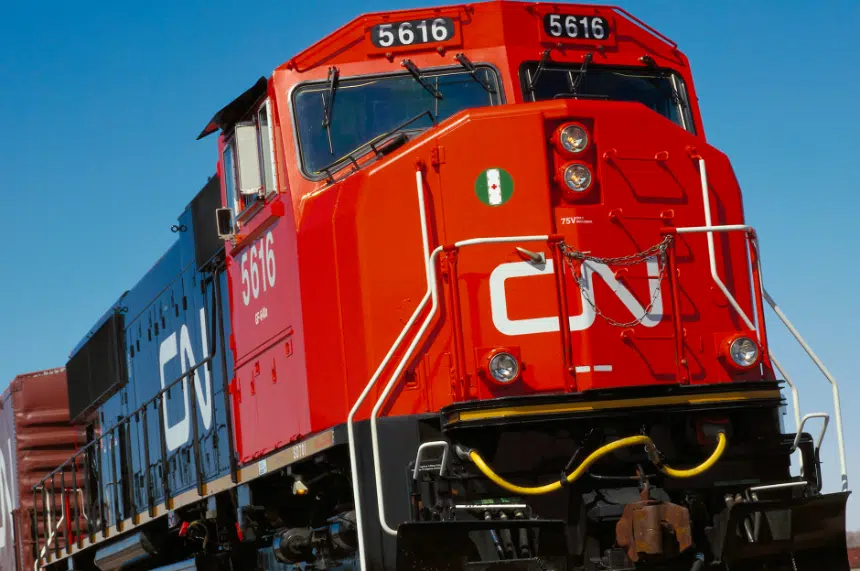With a new bill regulating Canada’s railways becoming law this week, the head of one of Saskatchewan’s largest farm advocacy groups says he’s hoping to see better service from the country’s major rail carriers.
Todd Lewis, president of the Agricultural Producers Association of Saskatchewan, spoke about the newly passed bill C-49 Thursday with Gormley.
He said it would likely take some time to see how the new regulations play out, but he saw a few things he liked in the new law.
Lewis said a move to allow financial penalties against railway companies that fail to move grain on time was a big change from the past, when only grain handling companies could be charged if they were late filling up rail cars.
“The contracts (now) are hopefully going to be that if the cars don’t show up on time, the railroads will have to pay a cost for that,” he said.
Lewis said he also approved of new rules making it easier to use a process called interswitching — effectively allowing companies to step in and use each other’s tracks.
“Basically, what it means is a CP train could come on to a CN line and pull a load out of a CN site if that was deemed necessary and they could provide the service in a more timely fashion.”
While Canada still only has two major national railways, Lewis said moves to encourage more competition were welcome.
Finally, Lewis pointed to C-49’s changes to the dispute resolution process between shippers and rail companies.
He said it was likely a positive step to have the new law be less reliant on having the grain companies file formal complaints against the railways.
“The shippers have been a little reluctant at times to (file complaints) because, of course, they’ve got a business relationship with these companies. No one wants to make enemies when you only have two railways to deal with,” Lewis said.
C-49 allows the Canada Transportation Agency to intervene in issues without a formal complaint, provided it consults with the transportation minister.
While he said he’s glad to see C-49 pass after lengthy delays moving through Parliament, Lewis said it has come late for many farmers still waiting to get last year’s grain shipped out.
“At the end of the day, I think the last report was we’re still over 20,000 cars short. Naturally, the railroads have done a better job this spring — they’re more efficient in warmer weather, without question. But sadly, that’s not when our customers need the grain.”







